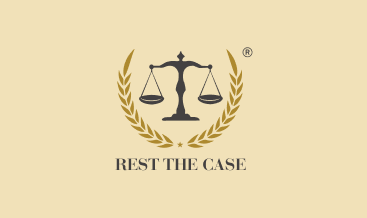Books
JUST MERCY- A STORY OF JUSTICE AND REDEMPTION

Just Mercy - A Story of Justice and Redemption is a real story about the potential for mercy to rescue and redeem and a strident call to end mass captivity in America. Bryan Stevenson is a public interest lawyer, a social justice advocate, and an author. He is the executive director and founder of EJI (Equal Justice Initiative) which is a human rights organization. His work is mainly based on eradicating and helping the poor, condemned, and the incarcerated.
Criminal justice in America seems more criminal than just repleting with malfeasance, error, cruelty, and racism, if not punishment, unusually coupled with resistance to reform, redress, and a failure to learn from its most flagrant and gross mistakes. And nowhere, are the matters worse than in the heart of Alabama a.k.a. Dixie, the adopted stepping ground of champion of the damned, Bryan Stevenson.
The visionary founder Stevenson has done as much as any other American to vindicate the innocence and temper justice with mercy for the guilty. His efforts brought him, a MacArthur “Genius” grant among innumerable honors, and honorary degrees from Yale, Penn, and Georgetown. Just Mercy- A Story of Justice and Redemption is a memoir of his journey in the law field. It is an easy read — a work of substance, style, and clarity. He has adroitly interspersed failure and triumph by mixing commentary and reportage, and neither of which is in short supply, against the backdrop of the saga of Walter McMillian.
Stevenson is a man of an enigma and mystery. Bryan Stevenson grew up in a working-class African American family. His 86-year-old grandfather was murdered when he was 16 years old by adolescent looters and marauders bent on stealing the elderly man’s black-and-white TV. Within a decade, he forsook the wealth that was virtually guaranteed by his degrees as a newly minted lawyer, taking what amounted to a vow of poverty to pursue civil rights law in the South.
Stevenson’s greatest gratification is the absolution of McMillian, whose case was played out in Ala. McMillian’s conviction rested on the testimony so bizarre and preposterous that it’s astounding that anyone could believe it, including the police officer who placed McMillian at fish fry 11 miles from the crime scene where it occurred.
Excerpts from the story read how the proximity has taught him some truths that are humbling, and a vital lesson that we are more than the worst thing we have ever done and, and that the true measure of a person’s commitment to the society’s character, justice is the commitment to the rule of fairness, law, and equality that is immeasurable by the way we treat the powerful, the privileged, and the respected among us. Stevenson’s work with the poor had persuaded him to understand that the opposite of poverty is justice. The true measure of any person’s character is known by how they treat the disfavored, the poor, the accused, and the condemned. In the South, horrendous crimes like assaults or murders can send you to prison, but desegregated sex was a barratry category of danger with extreme punishments.
Stevenson took on the representation of clients who were sentenced to life imprisonment without acquittal for crimes committed as juveniles. In challenging their punishments, Stevenson emphasized, as he has mentioned in his memoir, the difference and incongruity of not allowing children to smoke or drink or vote because of lack of maturity and judgment, while treating some neglected, vulnerable, and impaired children exactly the same as adults in the justice system for criminals.
The central idea and question behind this book are why and how people are treated unfairly? US is the only country to give life imprisonment without parole to children. There’s a possible error in thought process about racism, we think about the racial events than the racial patterns. We acknowledge the known racial event and ignore the fact that racism existed for decades before these events occurred.
Why should you give it a read?
Young people and minds in todays world will very well relate to Stevenson’s work. The story is one that strives and works to protect the basic human rights for the most vulnerable people marked by discrimination and marginalization in the American society- the poor, the disfavoured, the poor, the wrongly convicted. Reading through this adaptation will help the people to find themselves being more compassionate and call to action in the pursuit of justice. This will also help the lawyers understand about the atrocities that exist and occur within the US legal system. The book is highly recommended in order to perform our duties as global citizens of the nation to uprise ourselves of the social injustices.




